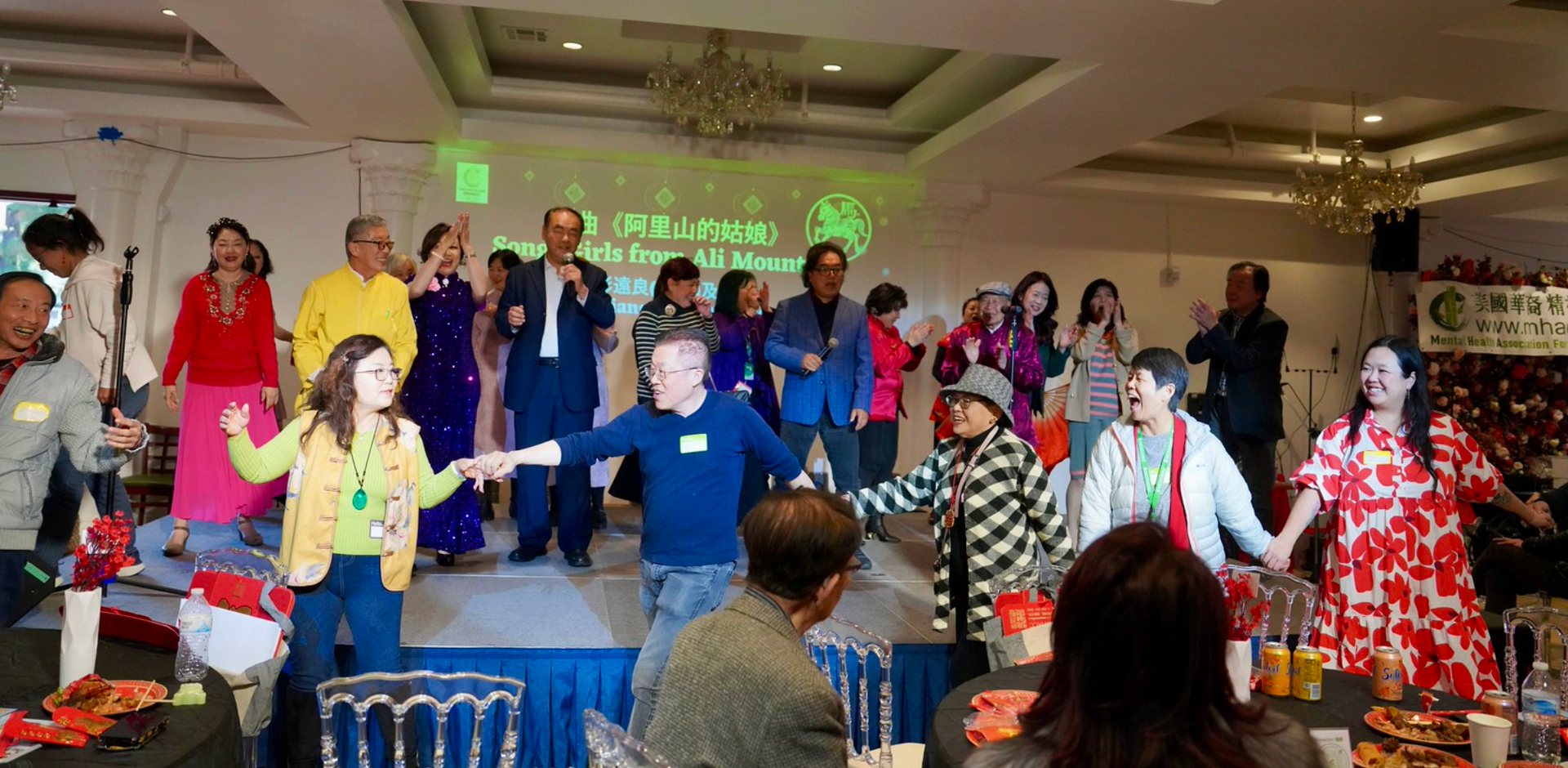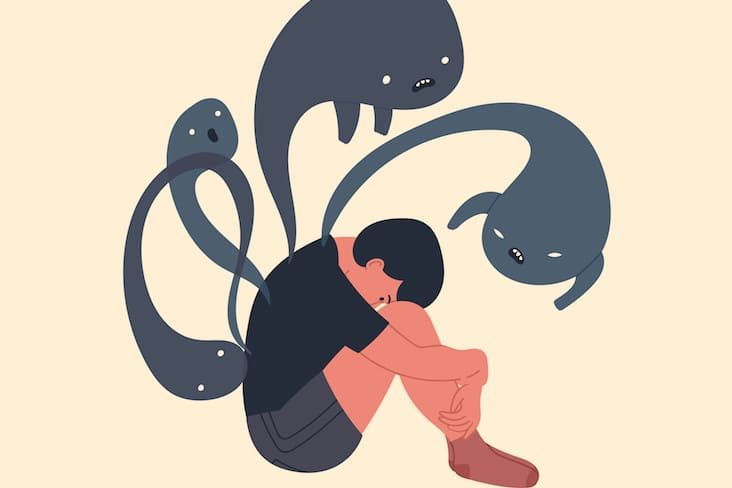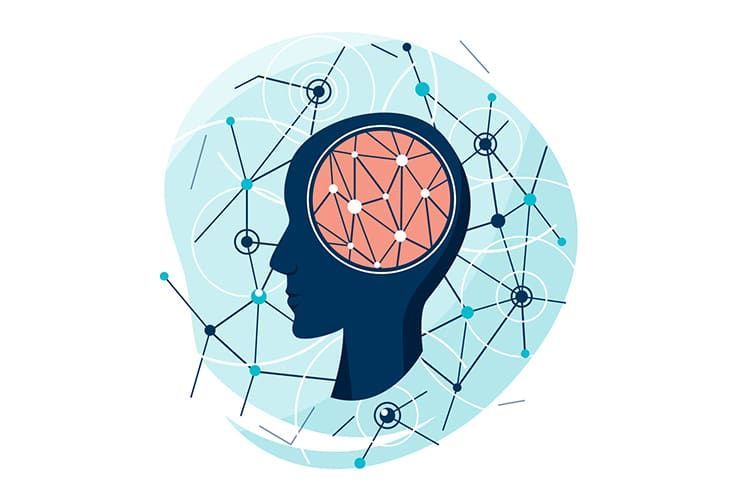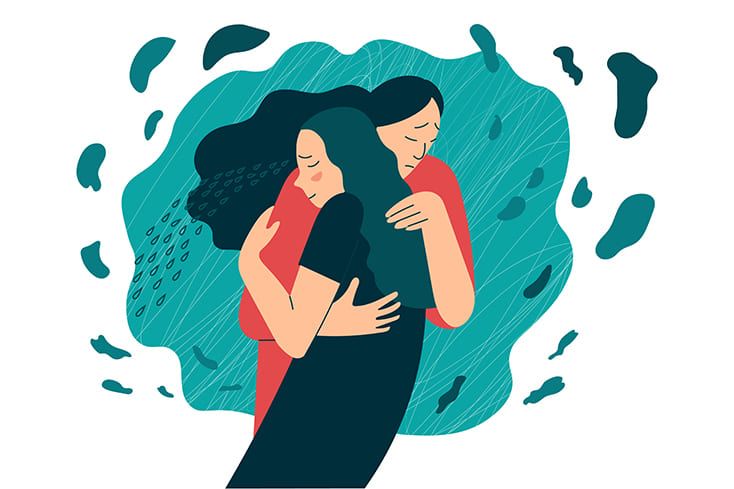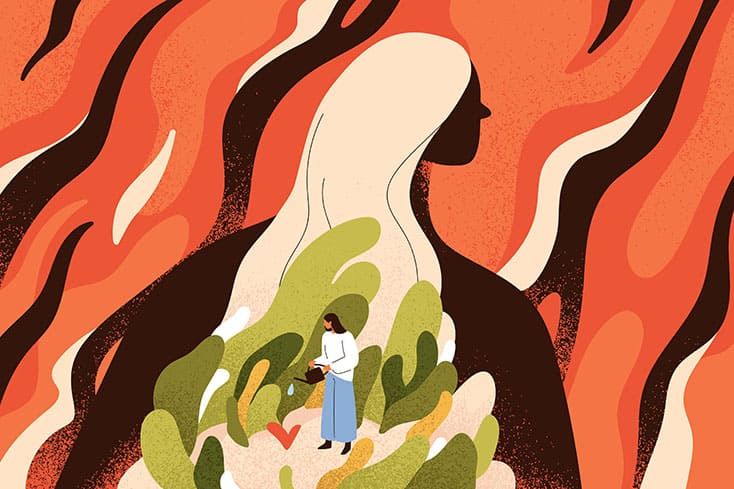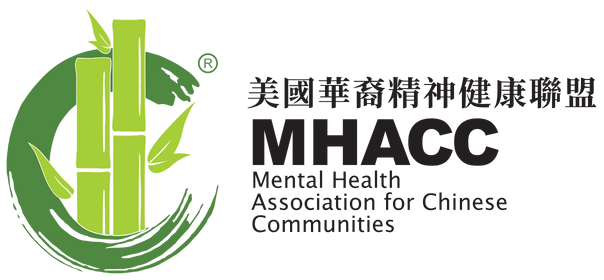冬季憂鬱症:了解季節性情感障礙 | Winter Depression: Understanding Seasonal Affective Disorder
MHACC 雙語部落格 Bilingual Blog
Scroll down for the English Version ⬇️
随着感恩节的余温消散,悄然而至的冬天不但带来了寂静和冰冷,也带来了一种被称为季节性情感障碍(Seasonal Affective Disorder, SAD)的情绪波动。这种情绪障碍影响着全美数百万人,却常常被忽视。
在这昼短夜长的季节,一些人可能会经历难以言喻的忧郁,这是一种深刻而持久的心理状态,让我们来了解一下,冬季SAD。
SAD的症状和影响
冬季型SAD不仅仅是简单的“冬季忧郁”,它是一种真正的情感挑战。
它的症状多样,包括持续性的悲伤、焦虑或空虚,感到绝望或悲观,易感烦躁沮丧或不安;感觉自己无价值或无助,失去兴趣或乐趣,感到疲劳或行动迟缓;难以集中注意力、记忆力下降,出现疼痛、头痛或消化问题;自杀的念头或自杀尝试;过度睡眠,暴食,特别是对碳水化合物的渴望,以及社交退缩。
SAD的成因
科学家们已经发现,SAD与我们的生物钟和大脑中的化学物质变化密切相关。冬季日照时间减少,导致体内血清素水平发生变化,进而影响情绪。
此外,SAD也与褪黑激素水平的改变有关,褪黑激素是维持正常睡眠-觉醒周期的重要激素。患有冬季型SAD的人会产生过多的褪黑激素,导致困倦和睡眠过多
维生素D的缺乏可能会加剧冬季型SAD的症状。维生素D有助于促进血清素活性,而在冬季,由于日照不足,人体生成的维生素D量减少,影响血清素的活性。
SAD的治疗方法
治疗SAD有多种方法,包括:
- 光疗:光疗是目前治疗冬季型SAD的主要方法。通过让患者每天早晨坐在一盏非常明亮的灯箱前大约30至45分钟,来补偿暗淡月份中自然阳光的减少。
- 心理治疗:认知行为疗法(CBT)帮助患者改变消极想法,鼓励进行愉快的活动。
- 抗抑郁药物:特别是选择性血清素再摄取抑制剂(SSRIs),调整大脑化学物质。
- 生活方式调整:饮食平衡,维生素D的补充。
冬天不只有雪
保持适当的社交活动对于抗击SAD至关重要。与家人、朋友的互动,或是参与社区活动,可以有效提升情绪。
就像季节的轮回,冬天虽然漫长,但终将过去,春天总会随之到来。在抵御寒冷的过程中,更要在心灵深处寻找那份坚韧和光明。
毕竟,冬天已经来了,春天还会远吗?
以上是关于SAD的科普,了解更多请浏览国家心理健康学院的网页:
https://www.nimh.nih.gov/health/publications/seasonal-affective-disorder
重要的是要记住,帮助永远在您身边。如果您或您认识的人在应对SAD或其他心理健康问题时需要支持,美国华裔精神健康联盟(MHACC)提供了一个宝贵的资源——心理暖线。
MHACC心理暖线致力于提供免费而专业的心理支持和资源转介。无论您感到恐惧、焦虑、抑郁,还是仅仅需要找人倾诉,拿起电话,我们就在这里,倾听您的心声,陪伴您度过难关。
- 1 (800) 881-8502
- 每周7天,上午9点至晚上9点(美国西部时间PST)
- 国语/粤语/英语
加入我们
如果您希望成为MHACC暖线志愿者,帮助更多人点亮黑夜中的一点火光,请通过电子邮件联系我们:HR@mhacc-usa.org
//////////
As the heat of Thanksgiving dissipates, the approaching winter brings not only the frigid cold, but also a type of disorder called Seasonal Affective Disorder (SAD). This mood disorder affects millions of people across the United States, but is often overlooked. During this season of shorter days and longer nights, some people may experience unspeakable depression, a deep and long-lasting psychological state.
Symptoms and effects of SAD:
Winter SAD is more than just the "winter blues"; it's a real emotional challenge. Symptoms include persistent sadness, anxiety, or emptiness, feelings of hopelessness or pessimism, susceptibility to irritability, depression, or restlessness; feelings of worthlessness or helplessness; loss of interest or fun; feeling tired or sluggish; and difficulty concentrating. One may also experience memory loss, pain, headaches, digestive problems, suicidal thoughts or attempts, excessive sleeping, overeating, and social withdrawal.
Causes of SAD:
Scientists have discovered that SAD is closely related to changes in our body clocks and brain chemicals. The reduction in daylight hours in winter causes changes in serotonin levels in the body, which in turn affects mood. In addition, SAD is also associated with changes in melatonin levels, an important hormone that maintains normal sleep-wake cycles. People with winter-type SAD produce too much melatonin, causing drowsiness and excessive sleep. Vitamin D deficiency may exacerbate symptoms of winter SAD. Vitamin D helps promote serotonin activity. In winter, due to insufficient sunlight, the amount of vitamin D produced by the body decreases, affecting the activity of serotonin.
Treatments for SAD
There are many ways to treat SAD, including:
- Phototherapy: Phototherapy is currently the main method for treating winter-type SAD. It compensates for the decrease in natural sunlight during the dimmer months by having the patient sit in front of a very bright light box for approximately 30 to 45 minutes each morning.
- Psychotherapy: Cognitive behavioral therapy (CBT) helps patients alter their negative thoughts and encourage pleasurable activities.
- Antidepressants: specifically selective serotonin reuptake inhibitors (SSRIs), which modulate brain chemicals.
- Lifestyle adjustments: balanced diet, vitamin D supplementation.
Winter is not just about snow
Maintaining appropriate social interactions is crucial to combating SAD. Interacting with family, friends, or participating in community activities can effectively enhance your mood. Just like the cycle of seasons, although winter is long, it will always pass. In the process of resisting the cold, we must also look for the tenacity and light deep in our souls.
After all, since winter has come, can spring be far behind?
Ending Notes
Above is the popular science about SAD. To learn more, please visit the National Institute of Mental Health’s website: https://www.nimh.nih.gov/health/publications/seasonal-affective-disorder
It’s important to remember that help is always there for you. If you or someone you know needs support while dealing with SAD or other mental health issues, the Mental Health Coalition of Chinese Americans (MHACC) offers a valuable resource - The Mental Health Line. MHACC Psychological Warmline is committed to providing free and professional psychological support and resource referrals. Whether you're feeling anxious or depressed, or just need someone to talk to, please pick up the phone. We are here to listen and help you get through it.
1 (800) 881-8502
9am to 9pm (PST), 7 days a week
Mandarin/Cantonese/English
Join us
If you would like to become a MHACC warm line volunteer and help those in the dark find a bit of light, please contact us via email: HR@mhacc-usa.org
